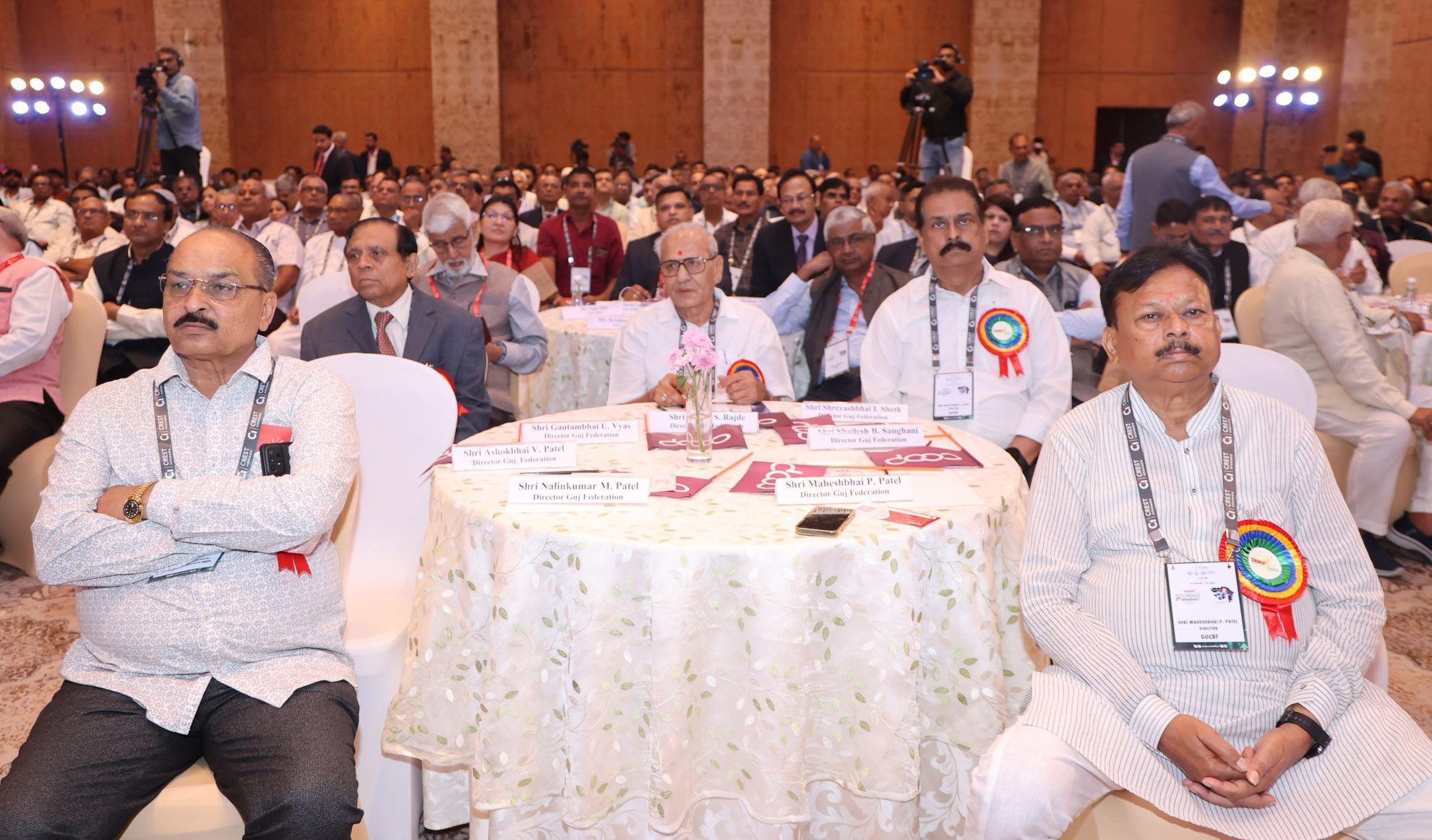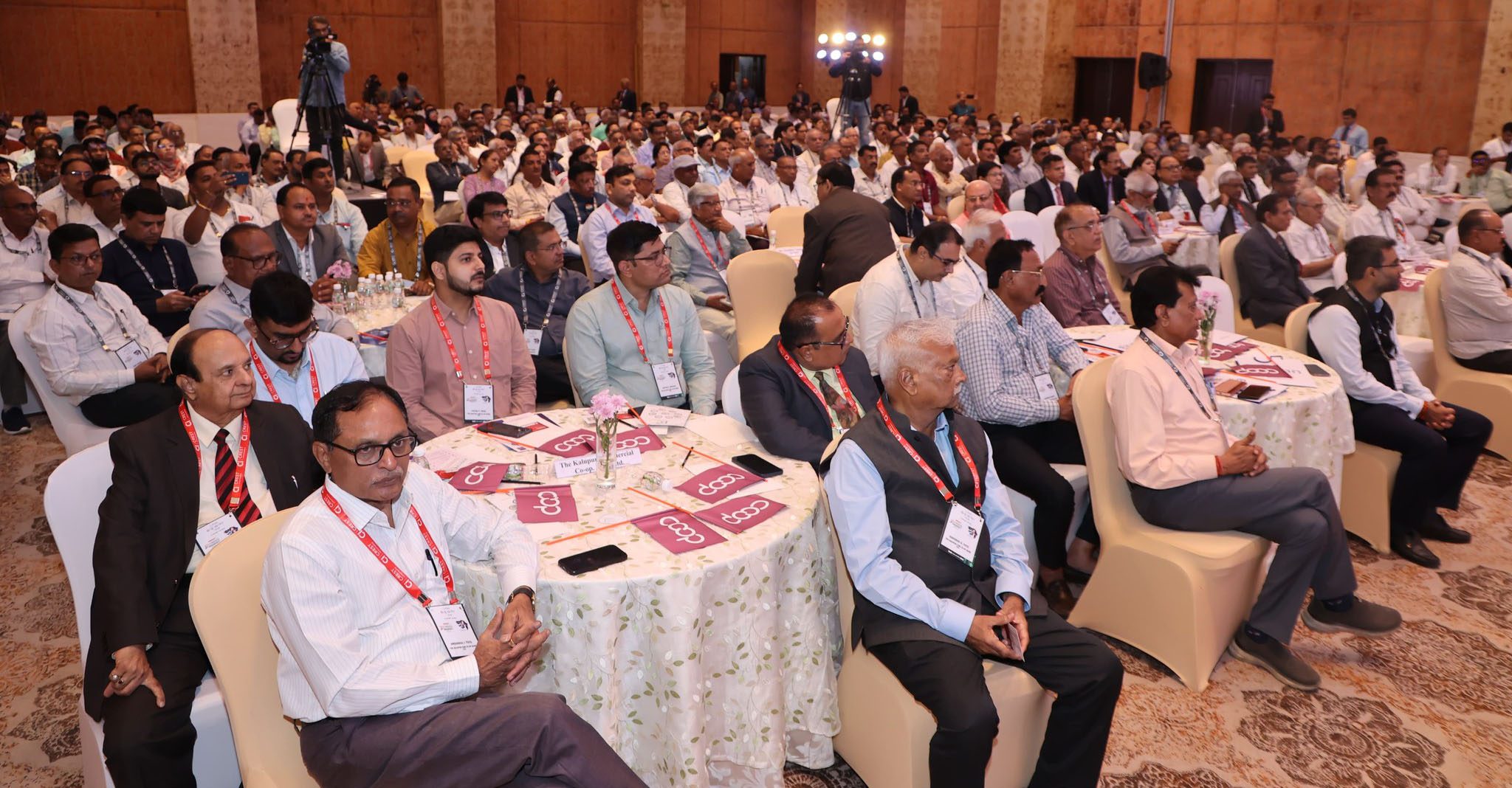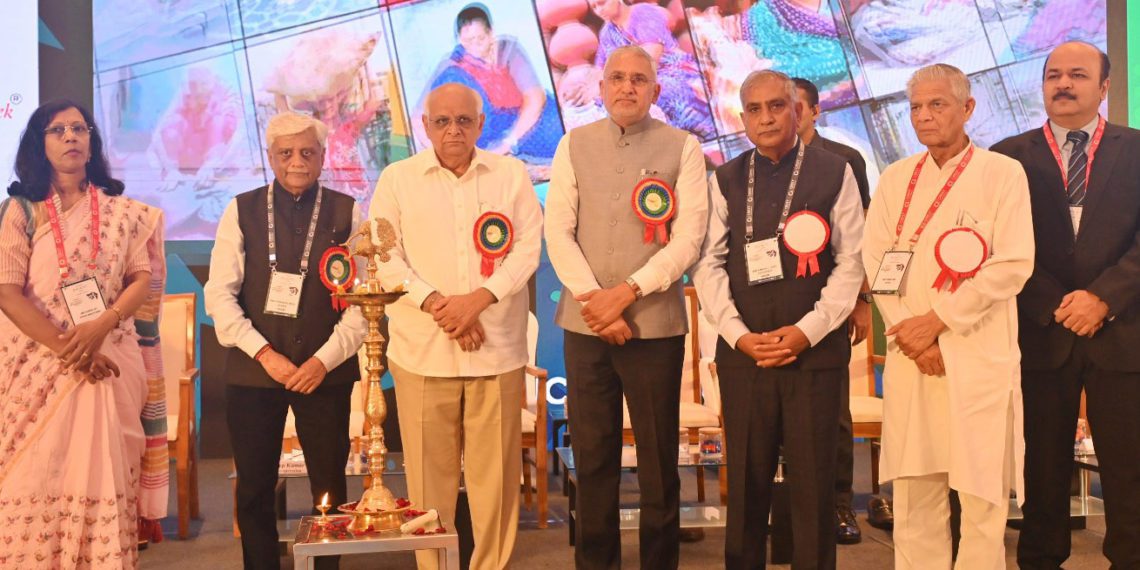Gujarat’s Urban Co-operative Banks (UCBs) have shown remarkable performance, achieving a Gross Non-Performing Asset (GNPA) ratio of just 0.5%. This is well below the national average of 3.8% for UCBs across India, marking the financial strength of the state’s UCB ecosystem. Jyotindra Mehta, Chairman of the National Urban Co-operative Finance and Development Corporation (NUCFDC), highlighted this achievement during the Sahakar Setu Summit at The Leela, Gandhinagar.
The one-day summit, aimed at strengthening the western UCB sector, attracted over 500 participants, including policymakers, regulators, and banking leaders. Mehta emphasized that Gujarat’s UCB ecosystem is poised for sustainable growth, with the low NPA rate signalling financial health and future resilience.
Several industry leaders echoed this sentiment, emphasizing the importance of digital transformation for UCBs. Customized solutions, last-mile customer service, and regulatory adaptability were identified as key factors enabling UCBs to carve out a niche in India’s larger financial landscape.
In his keynote address, Gujarat Chief Minister Bhupendra Patel highlighted that now is the golden period for the co-operative banking sector. He stressed that under Prime Minister Shri Narendra Modi and Co-operative Minister Shri Amitbhai Shah’s leadership, the state has made exceptional progress in co-operative prosperity. Patel praised the efforts of the Modi-Shah duo in revolutionizing Gujarat’s co-operative sector over the past two decades, moving it “two steps ahead of time.”


Speaking on behalf of the cooperative sector, Gujarat’s Minister of Cooperation Jagdish Vishwakarma emphasized the state’s transition from mass production to “production by the masses,” particularly in the milk industry. Gujarat’s cooperative banks facilitate daily payments of over Rs 150 crore through direct benefit transfers (DBT) to dairy producers, said the Minister.
Vishwakarma highlighted that Gujarat’s UCB network is stronger than in other states, with 211 UCBs operating across 1,138 branches, holding deposits of Rs 84,531 crore and loans of Rs 52,333 crore, yielding profits of Rs 1,300 crore.
Speaking at the session on “Responsible Banking for Sustained Growth and Development,” Jyotindra Mehta reiterated that India is home to over 1,500 UCBs, with around 218 in Gujarat. While many of these banks are small and limited by size, NUCFDC is actively working to support their technological adaptation. He said, “We are committed to providing affordable, innovative technology solutions to help UCBs thrive in the next century.”
Among the participants were policymakers, regulators, and industry leaders. Notable dignitaries who graced the occasion included Smt. Scenta Joy, Chief General Manager of the Reserve Bank of India and Laxmi Dass, President of the National Federation of Urban Cooperative Banks and Credit Societies Ltd. (NAFCUB).
NUCFDC newly appointed CEO Prabhat Chaturvedi also addressed the audience, focusing on the future of UCBs in terms of governance, technology, and operational efficiency. He noted that the sector’s growth will depend on its ability to implement robust, scalable, and cyber-resilient IT infrastructure that meets evolving regulatory demands.
The summit’s theme, “Technology for Transparency and Transformative Growth,” underscored the critical role of digital solutions in enhancing UCB transparency and fostering long-term growth. Industry leaders and policymakers agreed that while the UCB sector faces significant challenges, it also has the potential for transformative success through strategic digital adoption and sound governance.


















































